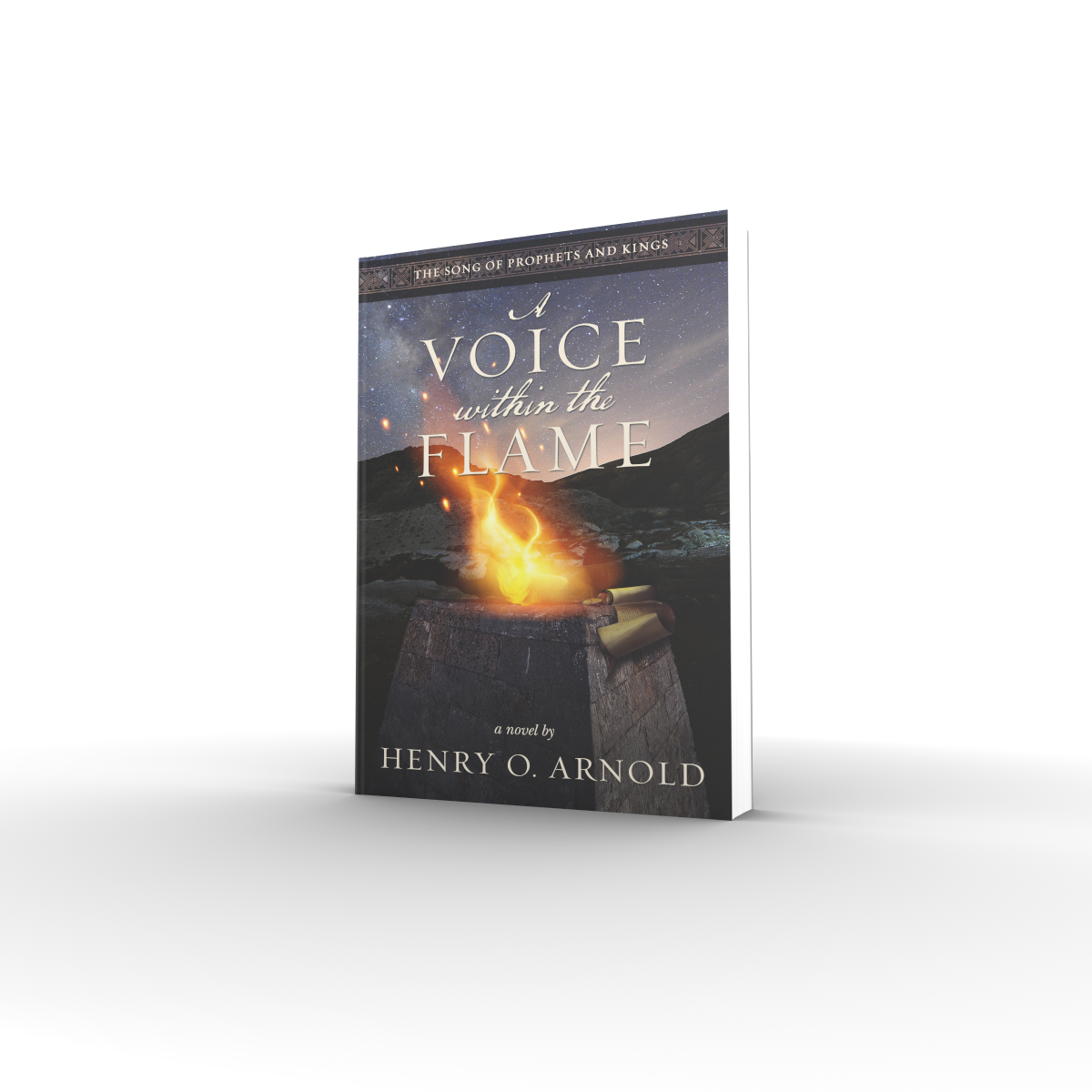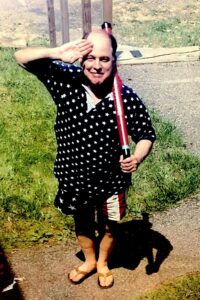When we returned home to Nashville from our one-year sojourn to Washington State in search of holograms and lazar-lights for our biblical epic, I heard about the British actor, Alec McCown, doing a one-man production of “St. Mark’s Gospel.” He had memorized all of Mark’s gospel, KJV no less, and given performances in London and New York to packed houses. I knew no one was going to hire me for such a venture (my name had no marquee value, nor did I have a British theatrical resume), but I began to test the waters of the church world to see if any might be open to having someone dressed in Levi jeans and a J. Crew shirt tell stories from the Bible in their sanctuary.
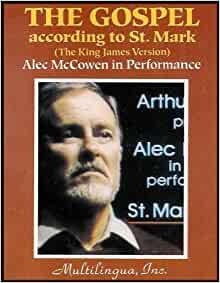
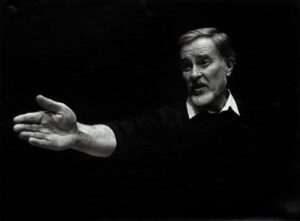
After our second daughter, Lauren, was born, I took the hologram/lazar-lights show of the famous apostle and transformed it into a simple one-man show with two wooden benches for a set. And, inspired by Mr. McCown’s success with his “St. Mark’s Gospel,” I created a second one-man show on the life of Jesus. Instead of using one Gospel as my source, I cherry-picked stories of Jesus from all four Gospels and compiled them into a dramatic sequence. I asked a few area churches to allow me to showcase my one-man shows of Paul or Jesus, and because of their kindness, I was able to get a few more churches to open their doors.

When it came to setting a fixed cost for those performances, I did not have the business savvy or plain old chutzpah to demand a set fee, so I accepted what was referred to as a “love offering.” After a performance the collection plates would be passed, and whatever came in, I took home. At times those love offerings did favor me with love, but many times what arrived in those receptacles was little more than a “like” offering, or a “This guy wasted an hour of my time that I will never get back” offering. And there were those times when my fingers and toes outnumbered the audience. Often discouraged but not defeated, I created a third one-man show on the life of David, which made up my “The Word Made Flesh” trilogy, and I pursued my quest to give live performances of these great biblical stories whenever possible.
An actor’s life is never predictable so I was pleasantly surprised when I was hired to produce a dramatized version of the New Testament using multiple actors. The text would be the King James Version chosen by the executive producer, i.e. “The Money,” because it was public domain and royalty free. Because of my theatrical experience and classical training, “The Money” wanted me to read the role of Jesus. The King James Version is similar in style and language to that of Shakespeare, so I was thrilled to have this opportunity. I embraced this project, heart and soul, but with no practical sense of what it meant to produce such a mammoth project. When I rode in “The Money’s” Silver Cloud Rolls Royce to the lawyer’s office to draw up the contract, I regretted not taking that business class in college. The contract favored “The Money.” I was given a fixed budget, which meant, by the time I turned in the finished recording, I was paid the equivalent of a convict’s wages. But I did get to hire several actor friends, including my sister and my father, which was a supreme blessing.
When the project was complete, “The Money” began a direct-mail sales campaign. His hope was to get a big-time televangelist to endorse the product and pick our dramatized New Testament as a give-away for their fundraising appeals. When “The Money” got word from the leading televangelist of the day that he liked the product but could not stand the guy who played Jesus, “The Money” made an executive decision: re-record the Gospels with a new Jesus. I was replaced by the silky-smooth voice of a small-time radio host. I only found out about the switcheroo because the radio host called me to apologize. The televangelist had not liked the way I spoke the King’s English with such passion or dramatic intent. I guess Jesus used his silky-smooth voice when kicking the merchants out of the Temple, or sweating blood in Gethsemane as he prayed, or crying out to God while dying on the cross. So silky-smooth beat out the classically-trained actor. But it was not long before the big-time televangelist got his show canceled because of inappropriate behavior outside of the marriage bed. It was hard not to gloat when witnessing the proverbial “pride goeth before the fall” on full display.
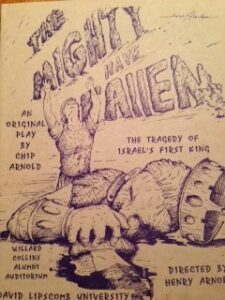
It was my father who picked me up and dusted me off after that experience. My father was always a rescuer. As head of the theatre department at Lipscomb University, Dad produced and directed two full-length plays I had written on biblical subjects. One was entitled “The Mighty Have Fallen,” about the rise and fall of King Saul, the first king of Israel. This beautiful production spurred my imagination to dream of writing a series of novels on the first three monarchal dynasties of ancient Israel. But at that moment in my life I had to make a living and writing biblical/historical fiction was not paying the bills.
During those years I was experiencing an intense soul-crushing. God was not cooperating with my transactional, quid pro quo plan I had so carefully laid out for Him to endorse. My theology was misguided. My ego was being broken and it hurt like hell. Kay and many other dear people held onto to me as I went through that emotional, white-knuckled period in my life. I was deep inside a spiritual crucible and there was a lot of dross to be burned out.
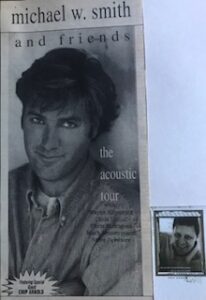
Then in the mid-nineties, Michael W. Smith asked me to open for him on his “The Acoustic Tour.” We had performed together off and on for several years. He would play his songs and I would do an abridged version of my show on Jesus. But on this tour MW had a full band, and we played twenty cities, in mega-churches or arenas, with a combined audience count of over ninety-thousand people (Far beyond the count of my fingers and toes). And it began to dawn on me that all those years of performing for those small houses and small love offerings, that not only was I improving my craft as an actor, but my soul was beginning to experience an imperceptible transformation.
The next year I was in Africa shooting “Acts of the Apostles,” a film based on the book of Acts that was word-for-word New International Version. I played the role of the apostle Paul, and had to memorize long passages of scripture. Because it was an exact translation, there was no wiggle room when it came to the wording. It was hard work, and the discipline was good for me. This was all a part of a “slow drip” process allowing those sacred words to flow through my system with a power and a truth that I had not expected.
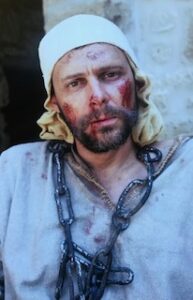
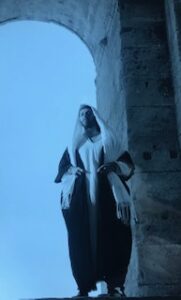
Once I complete a play or a film, the effects of the skin and bones of my character and their words of dialogue begins to evaporate in a short amount of time. But not the role of the apostle Paul, or any of the roles in my “The Word Made Flesh” trilogy. The words I memorized and spoke are true, and most important, the words reveal the One who was and is the true source of power and life, and I am not the same man.
From these collective professional experiences, I began to feel a deeper sense of calling and purpose, a deeper sense that what I would write in the future might bear more of an eternal weight. By “eternal” I don’t mean a “stand the test of time” longevity like great literature that survives for centuries. My literary skill is modest at best. Rather it is the source from which I draw inspiration that has already stood the test of time. The Scriptures bear the eternal weight of its truth, and I am only borrowing from it to write my stories. I take very little credit for originality. All these experiences played their part in sharpening my focus to become a writer. In the next installment of my story/blog I will write of how all of these events came to a head, and I finally sat down to begin writing “The Song of Prophets and Kings.”
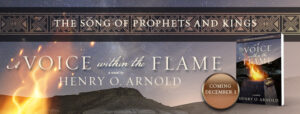
Cover Art: Roseanna White

